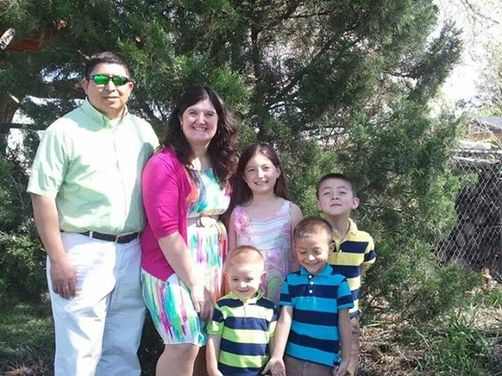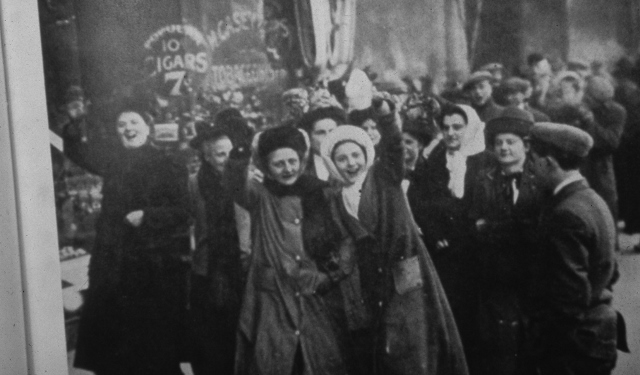|
The core themes of my writing delve into the qualities of human courage and resilience. My stories are often set amid historical events which have required people to reach inside and find depths of strength they never knew they had. We can look back dispassionately at the trials of history and see that people survive great suffering and go on to find meaning and joy in life. But sometimes the story intertwines with our own lives. It reaches out, clutches us and yanks us unbidden into a heartbreaking stream of events. We bob along trying to regain our equilibrium, but up is down and down is up and it seems a real possibility that we will drown in our sorrow. A week ago my sister's husband fell on the asphalt of a cul de sac and bumped his head and he's remained unconscious. As my sister goes through these days of uncertainty and suffering, her courage and resilience have amazed me. Filled with anxiety and facing the possible death of her husband she has stood at his bed in the critical care unit and spoken words of love and encouragement in a calm, strong voice. In private she has let go into weeping and raging, then walked into the next room and shown her four young children a face of normalcy, sitting with them to fill pages with bright colored drawings, taking them to release their energy at McDonald's Playland, helping them make their small painted handprints on a canvas surrounding Daddy's large handprint. I do not want to need courage like this. It's easier if courage is some noble action far removed from everyday life. And yet time after time we see that courage is wrought in our own personal dark places. We let down our defenses, our need to be in control, and we accept that pain is as much of life as joy.
Tell me your stories of courage. Whether large or small, the instances when we find our way to the light serve as inspiration for others. PS-One more day to enter the drawing for a copy of PURE GRIT. Sign up for my newsletter before February 1st and you could hold in your hands one of the very first copies released! Plus, get a sneak peek at all new videos! It’s been one of those days when nothing went as planned. Come to think of it, it’s been one of those weeks. Just five days before my manuscript was due at the publisher, I discovered a new piece of research. This detail means the beginning of my book must be totally rewritten. I had carefully crafted the beginning to set the tone and conflict for the story. And I was really looking forward to being done with this draft. I’m sure you’ve had days like that, when all your plans go awry, or something you’ve worked hard at falls apart. It’s life. We know it, but we don’t like it. This time instead of jumping right back into work, I’m taking a breather. Look at this photo I took. I find it really amazing and beautiful seeing the crystals of frost coating every blade of grass, even the spider webs. Nature clears my head. Pause for a few minutes and enjoy my pictures of Jack Frost’s handiwork. Life is beautiful. Tonight as I write this I am grateful for too many things to count. Thanks for stopping by and sharing a few moments with me. I'd love to hear what you do when your day falls apart. What? That's just me? Oh, well, humor me.
This week in history working women took a stand--radical in 1912--they refused to take a pay cut that would bite into their daily bread. Textile mills in Lawrence, MA employed mostly girls less than 18-years-old. Nearly all immigrants, they endured ethnic slurs and sexual harassment on the job. The mills were cold in winter, hot in summer; the machinery was dangerous, but even more perilous-the filthy, crowded mills were an incubator for tuberculosis. Up to 30 percent of the women would die of consumption before their 25th birthday. The Massachusetts legislature reduced the maximum workweek to 54 hours and the new law went into effect January 1, 1912. Mill owners promptly cut wages to make up the difference. They believed the girls and women were a malleable workforce, but underestimated the workers' resolve. When women got paid, January 11 and discovered they'd been shorted, 14,000 workers walked off the job. The next week another 9,000 followed. They picketed the mills and marched in the streets. As we come marching, marching, unnumbered women dead Go crying through our singing their ancient cry for bread. Small art and love and beauty their drudging spirits knew. Yes, it is bread we fight for - but we fight for roses, too. ~written by James Oppenheim *Click here for an annoted historical study of the origin of the phrase "Bread and Roses" 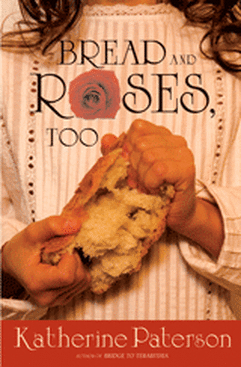 One of my favorite authors, Katherine Paterson wrote a middle-grade novel entitled BREAD AND ROSES, TOO. According to the Massachusetts Labor Commission, "...the lowest total for human living conditions for an individual...was $8.28 a week. Before the strike, a third of Lawrence families earned less than $7 per week. During the six week strike police opposed the women with bayonets and clubs, one woman was shot, others threatened with arrest and many were blasted with fire hoses in freezing weather. They did not give in. Management agreed to striker’s demands for a 15% pay raise, double pay for overtime and no retaliation against workers who had joined the strike. Unfortunately, over the next few years mill owners whittled away improvements in wages and working conditions, fired union activists and engaged spies to report on workers. A depression in the textile industry exacerbated the hardships. These women and thousands of others fought the bitter battle for labor rights, one step forward, two steps back workers gained vacation, sick pay, the eight hour day and the 40 hour work week. Some gave their lives, like Fannie Sellins who I am writing my next book about. If you have the weekend off, you owe it those who've gone before. If you're working overtime, I hope you're getting paid plenty and that it's by choice. 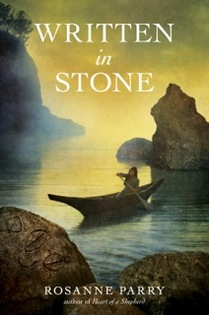 WRITTEN IN STONE by Rosanne Parry, a middle-grade novel featured on this blog in November has been judged a finalist for The Oregon Book Awards. The historical novel published by Random House is set on the West Coast of Washington State on the Makah Indian Reservation in 1920. It is one of three novels chosen for the Leslie Bradshaw Award for Young Adult Literature. The other finalists in the category are THE THEORY OF EVERYTHING (Philomel Books) by Kari Luna and AMBER HOUSE (Arthur A. Levine) by Kelly Moore, Larkin Reed and Tucker Reed. Award-winners will be announced March 17, 2014. Here's my interview where Rosanne talks about the historical background of WRITTEN IN STONE. To learn more about the Makah people and whaling check out the official Makah Tribal website here. To read more about Author Rosanne Parry, her books and teaching materials click here. For more History Matters videos check my YouTube Channel (still under construction).
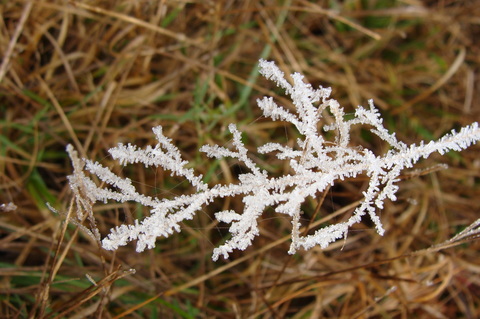 A college friend and I believed we had tapped great wisdom when we discovered the power of expectations. During our Saturday morning ritual re-hash of whatever party we had attended the night before, we noticed that whether we judged the party fun or a bust largely depended on how it had measured up to our expectations. High expectations=disappointing party. Low expectations=great party. Several decades passed before I understood this concept applied equally to life as to college keggers. Still more years of acquiring wisdom (euphemism for finding a grain of meaning in the seemingly unbearable pains of life) has taught me the most dangerous expectations are the ones you never knew you had until they were irrevocably dashed.
One could try to alleviate these surprises by imagining every conceivable danger, possible tragedy, personal loss and probable failure. Or maybe the key is to have no great expectations at all. An Eyore-life has a certain appeal. Back in college, my friend and I knew the answer was not to continually lower our expectations, (especially when it came to dating). We decided the key was having “realistic expectations.” Find a sweet spot between accepting mediocrity and courting disappointment. Now, I realize. It's not a sweet spot. It's settling. Expectations are normal and human, but for every joy there is an equal and opposite degree of suffering. Our expectations spring from the desire to protect ourselves from the suffering and park ourselves forever in the “joy” lot. Control is a tempting illusion. Finding a way to deal with expectations is especially important for writers because so much of the success of a book is truly out of our control. A recent blog post on this topic tweeted around the web like a hummingbird in heat. Author Jessica Spotswood writes honestly about the pain of having a book not live up to expectations and how she is finding strength to move ahead in her writing based on a greater purpose. My own disappointments have caused me to ask the question--is it possible to move beyond managing expectation to freeing myself from expectation? Sometimes. Sometimes not. But my efforts in this direction have convinced me it’s a worthwhile goal. Expectations by nature focus on the future, a future for which there are no guarantees. The only guarantee I have is the present. Taking my focus away from the future and directing it fully on the here and now frees me from the tyranny of expectation. When I dwell on the writing itself, on the joy of putting words together on the page, the excitement of the plot developing under my fingers, the satisfaction of bringing myself to a great depth of emotion—that is living. It opens me to possibility, stretches my imagination and casts me into mystery. Even the frustrations of the writing process are preferable to day dreams of a bestseller. Instead of worrying about whether or not my manuscript will get published, whether my book will be a success, or who’s definition of success to believe… the question becomes--can I accept what is true now? Can I find meaning and purpose in this moment? Stay tuned... I'll be looking at these possibilities and I would love to hear about how you deal with your expectations. |
I'm fascinated to discover little-known history, stories of people and events that provide a new perspective on why and how things happened, new voices that haven't been heard, insight into how the past brought us here today, and how it might guide us to a better future.
I also post here about my books and feature other authors and their books on compelling and important historical topics. Occasionally, I share what makes me happy, pictures of my garden, recipes I've made, events I've attended, people I've met. I'm always happy to hear from readers in the blog comments, by email or social media. Archives
September 2023
Categories
All
|
